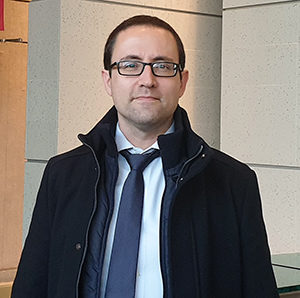Jose Francisco Monserrat, researcher from iTEAM Research Institute, has been selected by the World Bank as an expert for the preparation of its report on the deployment of 5G technology in developing countries. The researcher will work with a team of ten experts from the United States and three from South Korea.
Monserrat has participated this week at the World Bank headquarters in Washington in the first meeting of the team that will develop the study over the next three months. In it, the team of global experts at 5G will analyze the potential, challenges and opportunities of implementing this technology in four areas: energy, smart cities, agriculture and transport.
The work of the Monserrat will focus precisely on the area of transport, where together with his team from iTEAM, it is an international reference. In fact, this same group of iTEAM led the latest report on automotive and 5G of the European Commission.
“It was precisely as a result of this report that we received the request from the World Bank to develop a new study for them. With it, they want to analyze the extent to which 5G can contribute to the well-being and momentum of developing countries, what their impact would be and estimate the investment needed to deploy this technology,” says Jose Francisco Monserrat.
Autonomous and connected car
In the specific case of the UPV, and within the scope of transport, one of the main themes of the study will be the viability of the autonomous and connected car in developing countries. The work of iTEAM researchers will enable them to know the necessary investment in road infrastructure to convert them into 5G pathways and what the benefit would be both in terms of economic terms and for the health and well-being of these countries. Moreover, it will also provide to the World Bank with temporary planning for the deployment of this technology.
Environmental and safety advantage
As Monserrat explains, 5G technology would be key, for example, to avoid the circulatory chaos typical of Asian countries. And, in global terms, he highlights its environmental benefit: “the fact that cars stop continuously either due to traffic congestion, at traffic lights, etc. directly implies a very high consumption and emission of CO2. Once cars are autonomous and the roads are more fluid, CO2 emissions will be much lower and oil consumption will also be lower”, defends Monserrat, who also highlights another advantage: safety. “The conversion to 5G pathways will allow us to reduce traffic accidents. In Europe alone, more than 25,000 people die each year on European roads as a result of these accidents. 5G technology will make roads much safer,” concludes Monserrat.


